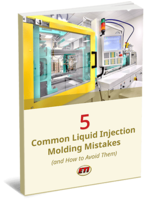BASF to Sponsor and Participate in SAE World Congress
FLORHAM PARK, NJ, March 15, 2011 - BASF today announced that it will sponsor and participate in the 2011 SAE (Society of Automotive Engineers) World Congress, April 12-14, at the Cobo Center in Detroit, Michigan. As the leading chemical supplier to the automotive industry, BASF is especially proud to be a sponsor this year, as 2011 is the International Year of Chemistry. Chemical products are playing a key role in the evolution of the automobile, from catalysts to reduce harmful exhaust emissions to plastics to reduce weight, improving fuel economy, to advanced coatings. Chemistry will be even more important for future vehicles, especially hybrid and electric vehicles that use chemical products for the batteries.
BASF has contributed to a number of presentations to be given at the SAE World Congress, including:
o Technical session co-chaired with Hyundai-Kia discussing Advanced Coating Formulation for an Innovative Compact Coating Process and five other presentations; scheduled for Tuesday, April 12 at 10:00 a.m. in room D0-03D
o VOC-Free, Cross-Linkable Acrylic Copolymers Offer New Opportunities for Eco-Friendly Automotive Composites; scheduled for Tuesday, April 12 at 3:20 p.m. in room D0-03D
o Hydrogen Effect on the DeNOX Efficiency Enhancement of Fresh and Aged Ag/Al2O3 HC-SCR in a Diesel Engine Exhaust (contributions from Heesung Catalysts, a joint venture with BASF); scheduled for Wednesday, April 13 at 10:20 a.m. in room O2-44
o Advances in Metal-to-Plastic Components & Modeling; scheduled for Wednesday, April 13 at 1:20 p.m. in room D0-04C
o Impact of Biodiesel Impurities on the Performance and Durability of DOC, DPF and SCR Technologies; scheduled for Thursday, April 14 at 9:40 a.m. in room O2-33
o Urea-SCR Catalysts with Improved Low Temperature Activity (contributions from Heesung Catalysts, a joint venture with BASF); scheduled for Thursday, April 14 at 9:40 a.m. in room O2-44
To promote its wide range of automotive solutions, BASF is also sponsoring the Technology Lounge: Powertrain/Propulsion/ Emissions/Environment, for speakers, presenters and organizers of the SAE World Congress.
BASF's catalyst technologies offer cost-effective emissions regulatory compliance solutions for light-duty gasoline and diesel engines, heavy-duty diesel engines, motorcycles, small engines, and more. These solutions include SCR (Selective Catalytic Reduction) on Filter technology, which can save weight and space by combining two emission control functions on one substrate.
The company's HED NCM cathode materials for lithium-ion batteries can offer higher energy density, safety and efficiency. Due to a very high degree of purity and excellent product characteristics, these materials are well-suited for the evolving requirements of batteries in automotive drivetrains.
BASF supplies automotive coatings to most major OEMs; and automotive refinish coatings to the collision repair and automotive refinish industries. BASF Polyurethane Solutions can be found in countless applications for the automotive and transportation industry. Polyurethanes are an extremely versatile material suitable for different automotive parts and components, including car exteriors, interiors, engine compartments and chassis. BASF works closely with car designers, engineers and manufacturers to apply its innovative product ideas in developing lighter, safer and more energy-efficient cars with unparalleled motoring comfort.
With today's challenge of light-weighting vehicles for improved fuel efficiency, automotive manufacturers realize the high quality and the diverse properties of BASF's engineering plastics, particularly when extreme demands are made in terms of thermal and mechanical strength.
As a development partner, BASF has contributed many innovations to the automotive sector. Examples are the world's first thermoplastic motor oil pans for trucks and the use of Ultramid® OSI (optimized stone impact) in the Ford® Scorpion® as the first integrated car oil pan. BASF innovations can also be found in the interior with the first highly-styled seating to incorporate a material-saving, weight-saving thermoplastic seat back frame.
For the structure of the vehicle, BASF's long glass fiber reinforced Ultramid® Structure LF was recently introduced as a specialty polyamide with considerable advancement in terms of mechanical and crash performance with metal substitution as the objective.
BASF offers the plastics industry an extensive range of additives and colorants, optimized to meet the special needs of the automotive industry. Since vehicles are constantly exposed to environmental conditions that affect their mechanical properties and hence durability, resistance to weathering is a crucial requirement for interior and exterior plastic parts. Thermal stabilizers protect plastics from oxidation caused by exposure to heat and help prevent loss of mechanical properties and aesthetic impairment. BASF's thermal stabilizers improve long-term thermal stability inside vehicles. BASF's light stabilizers for polypropylene (PP), reinforced PP and PP / thermoplastic polyolefin (TPO) help maintain the appearance and mechanical properties of plastic parts by providing protection against degradation caused by exposure to heat, light, water and other environmental factors. The company's anti-scratch additive improves the scratch and mar resistance of numerous car interior parts made of PP and TPO, including instrument and door panels, consoles and pillars.
BASF's comprehensive selection of organic and inorganic pigments for PP and TPO exterior parts, such as bumpers, rocker panels and side molding, withstand weathering conditions specified by OEMs whether they are used in mass tones or for shading or reduction. BASF also offers the broadest selection of organic and inorganic pigments for coloration of PP, PVC and polyurethane, the main visible substrates used in the automotive cockpit.
BASF - The Chemical Company.
BASF Corporation, headquartered in Florham Park, New Jersey, is the North American affiliate of BASF SE, Ludwigshafen, Germany. BASF has approximately 16,400 employees in North America, and had sales of $17.7 billion in 2010. For more information about BASF's North American operations, visit www.basf.us.
BASF is the world's leading chemical company: The Chemical Company. Its portfolio ranges from chemicals, plastics, performance products, and agricultural products to oil and gas. As a reliable partner, BASF creates chemistry to help its customers in virtually all industries to be more successful. With its high-value products and intelligent solutions, BASF plays an important role in finding answers to global challenges, such as climate protection, energy efficiency, nutrition and mobility. BASF posted sales of more than Euros63.9 billion in 2010 and had approximately 109,000 employees as of the end of the year. Further information on BASF is available on the Internet at www.basf.com or in the Social Media Newsroom at newsroom.basf.com.
For more information contact
Joseph M. Jones
BASF Corporation
Catalysts
Tel: (732) 205-5557
E-mail: joseph.jones@basf.com




